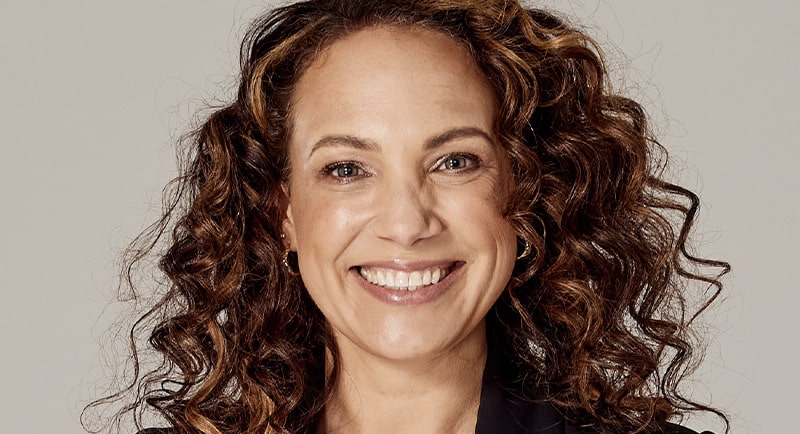Earlier in the year, the IMAA launched its Female Leaders of Tomorrow programme as part of its commitment to fostering long-term diversity and inclusivity across independent media agencies nationally.
The six-month IMAA programme aims to create a support network between accomplished industry leaders and their mentees by matching senior staff with up-and-coming women in indie media agencies for knowledge-sharing and professional development opportunities.
One of the IMAA mentors involved in the programme is Lauren Joyce, ARN‘s chief strategy and connections officer.
What’s the most important/best piece of advice you’ve received during your career?
“When I went into my first ‘big team’ leadership position, Henry Tajer said to me: ‘You’ll no longer be judged by how well you perform but by how well your team are doing’ and that has stuck with me. It has helped shape my leadership philosophy which is to ‘help people exceed their own expectations.'”
Who do you look up to in business and why?
“There is no ‘one’ person that I look up to, rather I admire different people for different qualities. I also tend to seek out inspiration closer to home – perhaps because their qualities are more relatable for me.
“I admire Mia Freedman for her instinct and ability to follow her gut. She’s also an incredibly hard worker, a great listener who values perspective, and someone who is open to having her opinion changed. I always felt seen and heard when I worked with her.
“Kylie Rogers is a force to be reckoned with. She’s groundbreaking in her role at the AFL, inspiring generations of women who love footy and giving them hope that they too can have a successful executive career in the sport. I also love that she has ‘lane jumped’ from media to sport, demonstrating that great, authentic leadership can adapt to different industries and subject matter.”
Did you have a mentor and what did they teach you?
“I have had, and still do have, various people in my life that I would call mentors. They’ve ranged from people whose jobs I want to have one day, to people who have more capability than me in a certain area but have less years in experience. I am a firm believer in the power of perspective and think that building your own ‘superpowers’ by learning from the perspective of others is important. So for me, it’s about the collective genius of many rather than the guidance of one.
“My greatest learning from this ‘collective genius’ is that lived experience is exponentially more meaningful than textbook learning. Having somebody reflect on how they have navigated a situation, and convey the impact it had on them, the business and other people, provides a much more realistic insight into how a situation that you find yourself in may play out. I find more academic advice is given in a vacuum and doesn’t account for the ‘human’ aspect which is the greatest variable to contend with when putting advice into action.
“Currently, I am fortunate enough to be able to call Belinda Rowe a mentor. She is a member of ARN’s board (among others) and has really encouraged me to challenge my own thinking. She is incredibly considered in her approach, asking me difficult questions to spark new thinking and has also facilitated a growing network of people who I can learn from beyond my day job. I feel incredibly fortunate to have her support.”
What does mentoring mean to you and why is mentoring important?
“For me, mentoring is about storytelling and visibility. I truly believe that we can all be better versions of ourselves by listening to other peoples’ experiences and learning from them and I believe the mentor/mentee relationship is mutually beneficial. I have walked away from every mentoring conversation that I have had, feeling richer in my understanding of how to navigate people which, irrespective of your vocation, usually makes up the majority of your job!”
Why is it important to have more women leaders in the industry?
“We need more female leaders because you can’t be what you can’t see. Early in my career, I could only see women at executive levels who had chosen to ‘join the boys’ or who were operating below their capability and neither of those endpoints felt right for me. I wanted to lead with authenticity and that meant remaining ambitious and realising my worth, while being true to my personal values. More broadly, I want a future for my daughter where she can apply her mental and emotional energy to the job at hand rather than having to expend it on working harder than her male colleagues to stand out, worrying about compromising her career for a family life or suppressing her response to stressful situations.
“Beyond that, female leadership is simply good for business. Increased employment and leadership opportunities for women have been shown to increase organisational effectiveness and growth. According to a report by UBS Wealth Management, it is estimated that companies with three or more women in senior management functions score higher in all dimensions of organisational performance.”
What’s on your business reading and podcast list?
“For my day job, I am across all of the usual trade media suspects both locally and internationally (Mediaweek, B&T, Mi3, Digiday, The Drum etc) but because I fundamentally believe that business success comes from how you help people to be better than they thought possible, much of what I read and listen to is to help me to better understand how people behave and why.
“I am currently listening to Radical Candor by Kim Scott and frequently listen to Culture Bites by Human Synergistics but I would also say that a lot of my understanding of people comes from podcasts like The Imperfects and All In The Mind. I also find that frequently reading Harvard Business School’s leadership insights keeps me well versed on business environments beyond media.”
